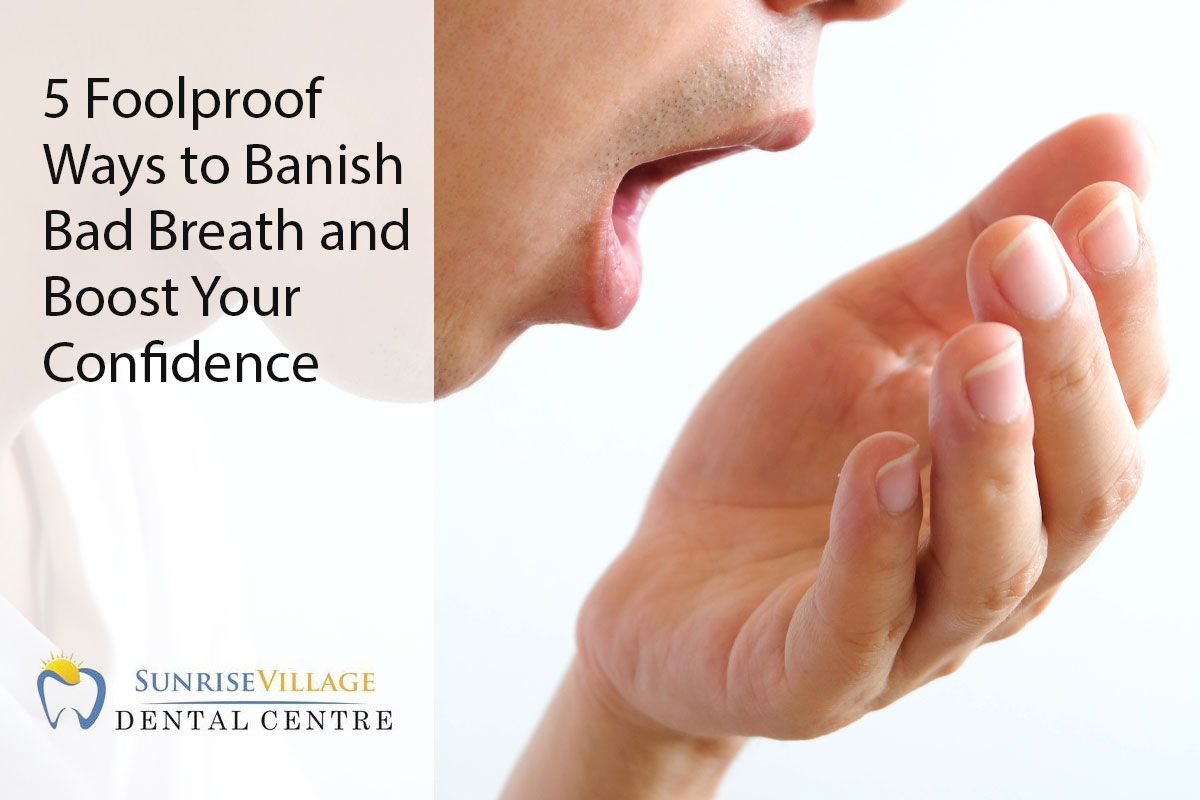
Are you troubled by persistent bad breath? Does it lower your self-assurance in social settings? Say goodbye to those concerns! In this guide, we’ll reveal five reliable methods to eliminate bad breath and enhance your self-esteem. Dealing with bad breath can be awkward and affect your connections, but don’t worry – by adopting the right strategies and making a few adjustments to your oral care habits, you can successfully tackle this problem and regain your fresh breath.
Maintaining Good Oral Hygiene Practices
The foundation of fresh breath starts with maintaining proper oral hygiene habits. Brushing your teeth at least twice daily is essential to eliminate plaque, food particles, and bacteria that lead to bad breath. Utilize a soft-bristled toothbrush and fluoride toothpaste to clean all surfaces of your teeth, including front, back, and chewing areas. Remember to gently brush your tongue too, as it can harbor bacteria contributing to unpleasant odor. Alongside brushing, flossing is equally crucial. It clears away plaque and food particles from between teeth and along the gumline, where your toothbrush can’t reach. Make flossing part of your daily routine, ideally before bedtime, for comprehensive cleaning and fresher breath.
Beyond brushing and flossing, incorporating an antibacterial mouthwash adds an extra layer of protection against bad breath. Opt for mouthwashes containing ingredients like cetylpyridinium chloride or chlorhexidine, which combat bacteria and refresh your breath. Rinse with mouthwash after brushing and flossing to complete your thorough oral care routine. Remember, consistency is vital – make a habit of daily brushing, flossing, and mouthwash use, and you’ll experience a noticeable enhancement in your breath’s freshness.
Incorporating Tongue Scraping into Your Routine
While brushing teeth and using mouthwash are crucial, many people underestimate the significance of tongue scraping. Your tongue is a breeding ground for bacteria, and if not cleaned properly, it can contribute to bad breath. Tongue scraping offers a simple yet effective way to eliminate bacteria and debris that accumulate on your tongue’s surface. This involves gently using a tongue scraper or a spoon-shaped tool designed for this purpose. Start from the back of your tongue and move the scraper or spoon forward with gentle pressure. Repeat a few times, rinsing the tool in between. Ensure you cover your tongue’s entire surface, including the sides. Making tongue scraping part of your daily oral care routine can notably decrease the bacteria causing bad breath. It’s a swift and easy step that can noticeably enhance the freshness of your breath.
Choosing the Right Mouthwash and Toothpaste
In the battle against bad breath, the choices you make regarding products can have a significant impact. Opt for toothpaste and mouthwash specifically designed to target bad breath and offer lasting freshness. Seek out toothpaste with fluoride, which prevents tooth decay and strengthens enamel. Look for antibacterial agents like triclosan or essential oils such as tea tree oil, as these ingredients can help eliminate bacteria and fight bad breath. When choosing mouthwash, opt for ones with antibacterial qualities containing elements like chlorine dioxide or zinc chloride. These components neutralize odor-causing compounds and leave you with a sensation of fresh breath. Avoid mouthwashes containing alcohol, as they can worsen dry mouth and exacerbate bad breath. Take care to read toothpaste and mouthwash labels diligently to ensure they suit your specific needs. If you have concerns or need advice on the best products to combat bad breath, consult your dentist.
Watching Your Diet and Staying Hydrated
Apart from oral care, your diet and hydration significantly influence breath freshness. Certain foods like onions, garlic, and strong spices contain sulfur compounds that can linger even after brushing, causing bad breath when exhaled. While it’s hard to avoid these foods entirely, mitigating their effects with brushing and mouthwash helps. On the flip side, fresh herbs like mint, parsley, or cilantro can neutralize odors, while crisp fruits and veggies like apples, carrots, and celery boost saliva production, naturally cleansing your mouth. Staying hydrated is vital too, as dehydration leads to less saliva, causing dry mouth and increased bad breath risk. Stay refreshed by drinking ample water throughout the day.
Seeking Professional Help if Necessary
While these suggestions can help improve your breath, persistent bad breath could be a sign of an underlying dental or medical concern. If home remedies don’t yield results, it’s wise to seek professional guidance. Regular dental check-ups are pivotal as dentists can pinpoint dental problems such as gum disease or tooth decay, both contributing to bad breath, and provide thorough cleanings to remove tenacious plaque and tartar. Should dental issues be ruled out, consulting a physician is advisable as medical conditions like infections or gastrointestinal problems might be the cause. Treating the root cause is paramount. Seeking help is a proactive step towards oral and overall health, and dental and medical professionals are readily available to assist you.
Conclusion
Persistent bad breath can undermine your self-assurance and relationships. Yet, adopting the reliable methods outlined here can help you defeat it and regain confidence. Embrace practices like maintaining oral hygiene, incorporating tongue scraping, choosing suitable mouthwash and toothpaste, mindful eating and hydration, and seeking expert guidance when needed. Fresh breath signifies oral health and elevates your self-assurance in social and professional contexts. By embracing these foolproof steps consistently, you can bid farewell to bad breath and welcome a more confident you. Take control of your oral well-being and embark on your path to a fresher breath today! Don’t forget to arrange regular appointments with your dentist. Reach out to Sunrise Village Dental at (604) 253-2433 to schedule yours.
